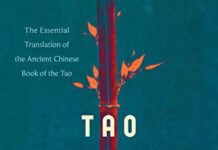
Ebook Info
- Published: 2016
- Number of pages: 262 pages
- Format: PDF
- File Size: 0.97 MB
- Authors: Lao Tzu
Description
Arthur Waley’s brilliant and definitive translation of one of the foremost of all mystical books, Lao Tzu’s Tao Te Ching, has become a modern classic in its own right. Unlike previous translations, it is founded not on the medieval commentaries but on a close study of all the early Chinese literature, and it provides a singular example of authoritative scholarship skillfully blended with brilliant, precise writing. In his introduction, Dr. Waley gives an extensive scholarly account of Chinese thought down to the end of the third century B.C. Here, the author presents a full picture of Chinese prehistory, early philosophy, and literature, showing the original, lofty conception of Taoism before the gradual corruption through the course of centuries, tracing this conflict of philosophies and its background of politics.
User’s Reviews
Editorial Reviews: From the Back Cover Lao Tzu’s Tao Te Ching is one of the most important and profound texts of world literature. A guide to transcending everyday appearances and dilemmas in order to find peace in the immortal spirit of Tao, the book is divided into eighty-one short sections that are both eloquent and inspiring. This edition of Arthur Waley’s definitive translation includes a comprehensive introduction, commentary, and notes section and offers the reader a perfect introduction to this timeless spiritual document. –This text refers to an out of print or unavailable edition of this title.
Reviews from Amazon users which were colected at the time this book was published on the website:
⭐I have read many translations of this book and each one has a particular overall feeling that is more from the translator than it is the translation. There are many reasons for this such as word translation choices, which source texts were used, author’s understanding and emphasis of the culture at the time, impact from people or previous translators, and more. Due to this the way the book reads, the way it translates, and the way it may or may not impact you is going to be especially important to which translation you read. Far more important than someone might think. With that said I believe that this translation is great for philosophers and those more interested in Chinese thought trends than someone who is interested in more mystical passages.The description provided on this book by Amazon is great and lays the stage for what to expect from the translation. You get a short introduction over a range of subject matters including of philosophy and thought at the time to setup a picture that hopes to enlighten the translation. At times this almost makes it read like a direct response to things that were happening rather than something that has a thing to say itself.The translation itself isn’t bad, but there’s more affirmative values than I’ve seen in other places. Often times when I got confused about a translation I would go to my favorite translation to see how they compare. The chasm built between the interpretations of small passages are large. I’d also like to add the style of commentary. Certain pages have notes where you can flip to the back to help fill you in on details and some have passages right after the translation. However, I did find that certain subject matters were not covered and therefore could lead to more effort on the reader to research than other translations.In the end it was an interesting translation, but one that was not for me. In Judaism there is an interesting phrasing used called PRDS (pardes/paradise) in which describes 4 ways of interpretation of a text. Literal/surface, allegorical/symbolic, metaphorical, and secret/mystical. I find this translation a little too oriented on the philosophy/thought which lends to more surface interactions as direct responses rather than the thing speaking for itself. This isn’t to say it’s incorrect, but I wouldn’t love books like Tao Teh Ching/ZhuangZi if this was the translation I was given. There’s things that were unintentionally robbed of value here and other things inserted that made it lack. My recommendation would be “The Sacred Books of the East” volumes 39 and 40 by Friedrich Max Müller if you were looking for something more.
⭐Before the reader gets to the Dao De Jing proper, he/she must wade through a rather long-winded, but mercifully brief, discussion of Chinese philosophy. If all readers want is the 5,000 character book itself, buy it in some other format. If readers have some interest in various schools of Chinese philosophy, this book holds some interest and can lead to further examination in other material.
⭐The translation of the Tao is excellent. The analysis of each section is illuminating, rigorous, and excellent. The introduction and preface and appendices provide an excellent historical context. I have bought multiple copies of this book, and will buy another one when my first copy is worn out.
⭐Excellent book via Waley. I am in my later years and I wish I had read and comprehended its contents earlier in life. I might have missed some pot holes so-to-speak in life.
⭐If you’re undecided about which copy of the Tao Te Ching to purchase buy this one. Arthur Waley’s introduction, which takes up the bulk of the book, is superb and alone is worth the price. I have several other translations and this is the best.
⭐Good book!
⭐good
⭐Great book
⭐Great book, arrived quickly and in excellent condition
⭐Waley is of course a very well known academic and translator of many Chinese works. For the highly telegraphic form of the original, terse formulation, my favorite is S. Addiss S. Lombardo’s who, as they say, used Anglo-Saxon monosyllables keeping to the bare bones of the translation to English. They avoided gender specific pronouns ‘he’ and ‘she’ which the chinese does not have. They attempt to translate and not interpret or explain nor paraphrase. Beautifully printed with ink calligraphy of Addis. My other favorite Tao te ching is that trans. by David Hinton, who is a top trans. of classical Chinese poetry and literature, a scholar and poet in his own right. Hinton brings out subtle points of a secular spiritual nature which he came to see embodied in Classical chinese poetry.
⭐I mus correc my previous evaluaion.
⭐Cette traduction du Lao tseu reste une des meilleures à ce jour. Elle vaut aussi toujours pour sa présentation et ses commentaires.Good product!
Keywords
Free Download The Way and Its Power: Lao Tzu’s Tao Te Ching and Its Place in Chinese Thought in PDF format
The Way and Its Power: Lao Tzu’s Tao Te Ching and Its Place in Chinese Thought PDF Free Download
Download The Way and Its Power: Lao Tzu’s Tao Te Ching and Its Place in Chinese Thought 2016 PDF Free
The Way and Its Power: Lao Tzu’s Tao Te Ching and Its Place in Chinese Thought 2016 PDF Free Download
Download The Way and Its Power: Lao Tzu’s Tao Te Ching and Its Place in Chinese Thought PDF
Free Download Ebook The Way and Its Power: Lao Tzu’s Tao Te Ching and Its Place in Chinese Thought


